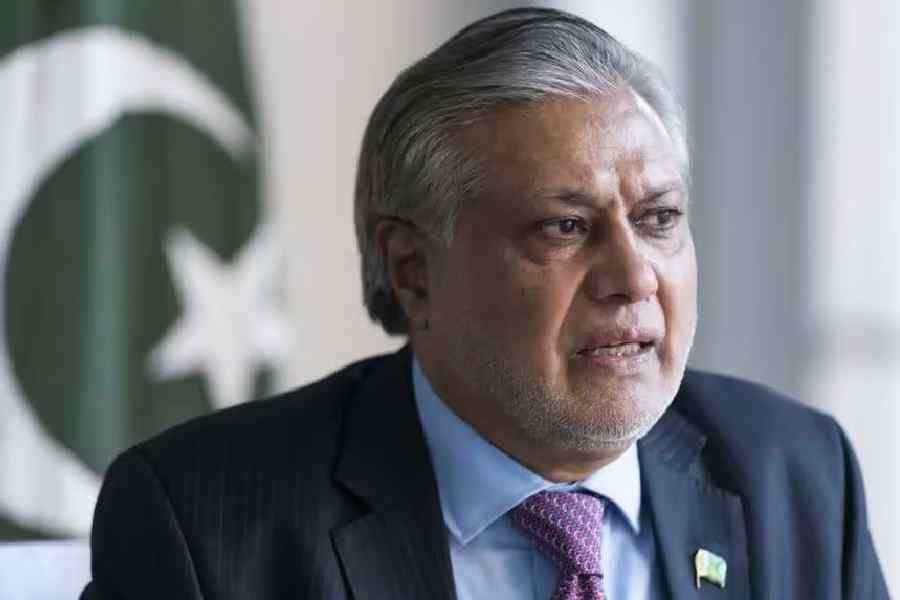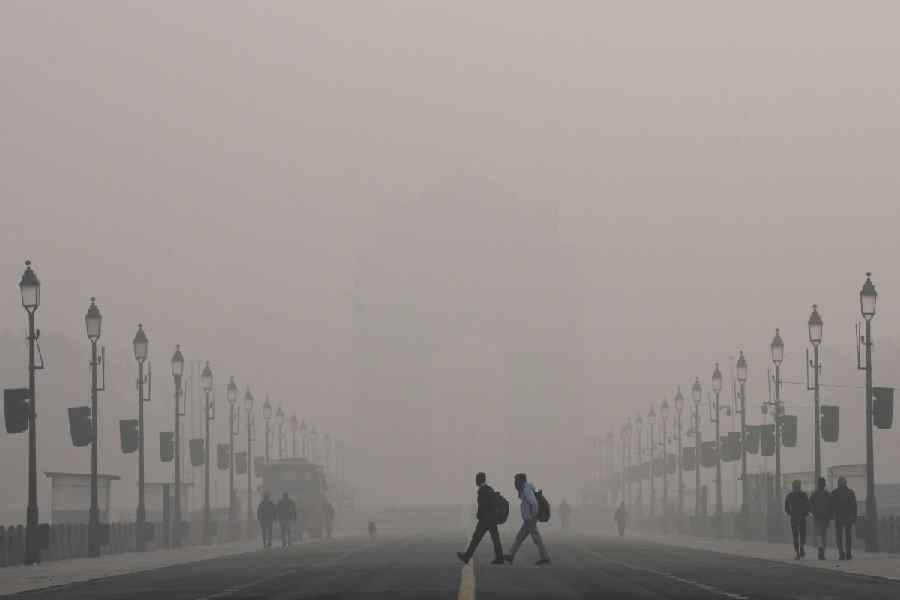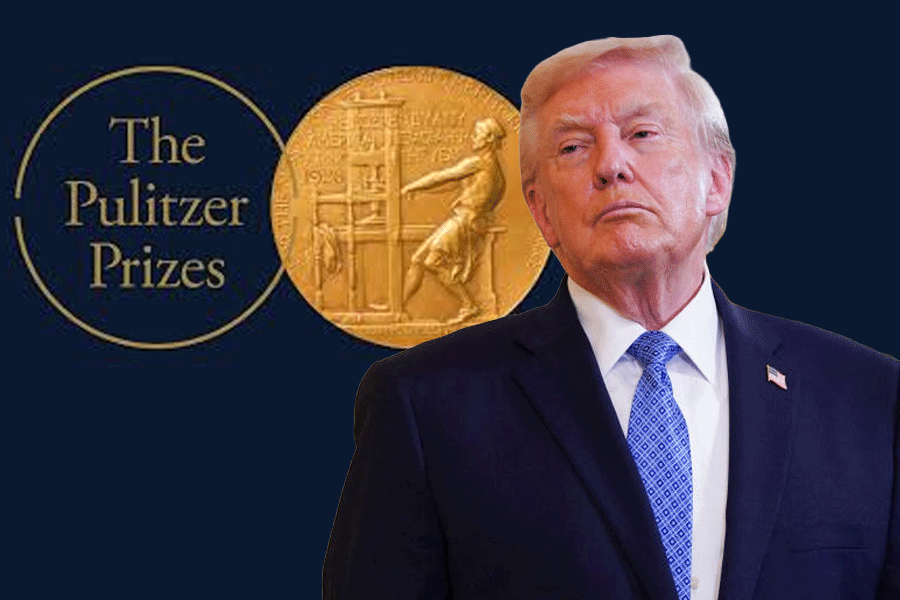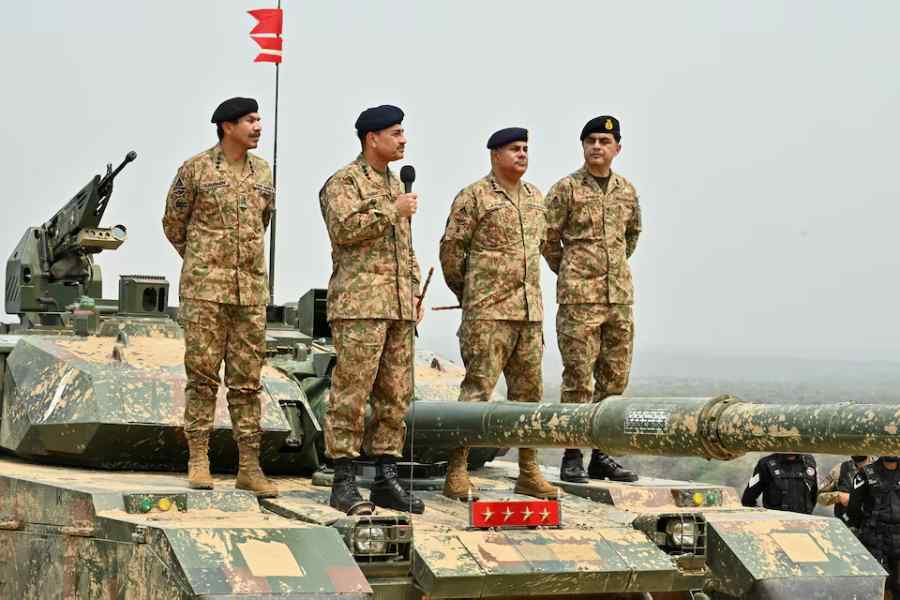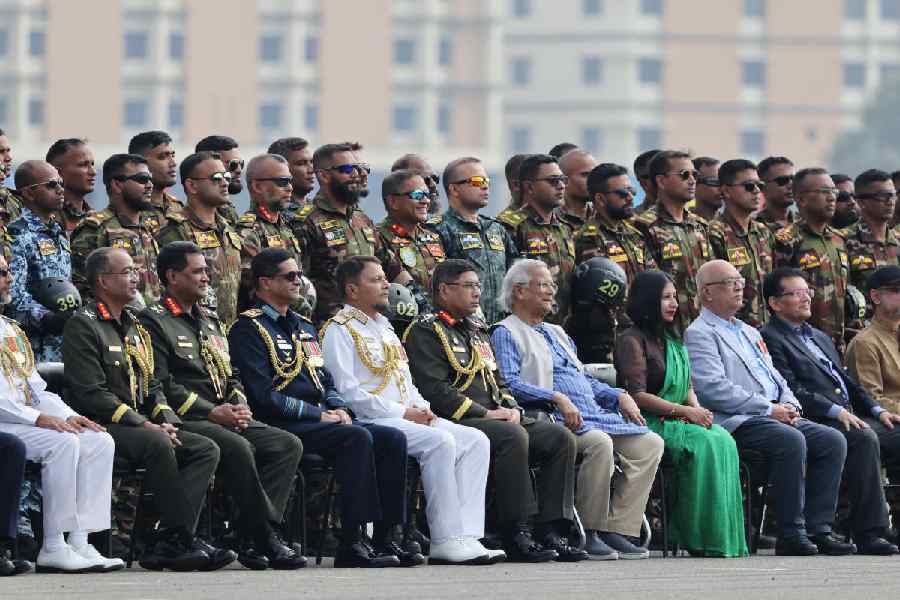Pakistan's Deputy Prime Minister Ishaq Dar on Monday arrived here to attend the fifth strategic dialogue with his Chinese counterpart to discuss among others the serious economic crisis in the cash-strapped country and Beijing’s concerns over increasing attacks on Chinese personnel working in CPEC projects.
Dar, also the foreign minister, is the first top official to visit China after Pakistan Prime Minister Shehbaz Sharif took over the premiership following politically volatile general elections.
Dar arrived in Beijing on a four-day visit for a comprehensive dialogue with China on the strategic direction of all-weather ties between the two countries in the fast-changing regional and global situation.
In the fifth strategic dialogue, the two sides will comprehensively review bilateral relations including economic and trade cooperation; high-level exchanges and visits; upgradation of the China-Pakistan Economic Corridor (CPEC), future connectivity initiatives; and the geopolitical situation, Pakistan’s official APP news agency reported.
The dialogue between Chinese Foreign Minister Wang Yi and Dar was expected to be held on Wednesday.
After his arrival, Dar met the Secretary General of the Shanghai Cooperation Organisation (SCO) Zhang Ming, and heads of some Chinese companies to scout for investments in Pakistan.
In his meeting with Zhang, Dar reaffirmed Pakistan’s unwavering commitment to the SCO Charter and the Beijing-based organisation’s fundamental ideals and expressed Islamabad's strong commitment to advancing SCO’s security and development cooperation agenda, APP reported.
Last month, former prime minister Nawaz Sharif made a surprise private visit to China’s Guangzhou city for medical checkups. He reported meeting several Chinese corporate heads to scout for investments in his country.
He later visited Hong Kong, according to reports.
His visit was followed by Ahsan Iqbal, Pakistan's Federal Minister of Planning, Development, and Special Initiatives, who last week held talks with Chinese Vice Foreign Minister and China’s former Ambassador to Pakistan Sun Weidong.
Their wide-ranging discussions aimed at further solidifying the "All Weather Strategic Cooperative Partnership", said a press release from the Pakistan Embassy in Beijing.
The visits were in preparation for Prime Minister Shahbaz Sharif’s first visit to China after taking over the post following recent elections.
Pakistan is reportedly pitching for the country’s major rail project connecting Islamabad with Karachi, estimated to cost USD 8 billion.
The strategic dialogue is key for both countries in the current state of serious economic and political crisis faced by Pakistan, a country in which China has made major strategic investments in the past few decades which analysts say are aimed at containing India’s rise.
China has been bankrolling Pakistan with periodic bailouts to maintain foreign exchange reserves as the cash-strapped country faced a prolonged economic crisis sustained on the International Monetary Fund (IMF) bailout packages.
While the details of their strategic ties, especially on the military front, largely remained secretive, officials here say Beijing is increasingly getting troubled by periodic attacks that militant groups conducted on Chinese personnel working in scores of the USD 60 billion CPEC.
The CPEC, which connects Gwadar Port in Pakistan's Balochistan with China's Xinjiang province, is opposed by India as it is being laid through Pakistan-occupied Kashmir (PoK).
In March this year, five Chinese and one Pakistani nationals were killed when their vehicle was attacked in Khyber Pakhtunkhwa province of Pakistan. They worked at the Dasu Hydropower Project undertaken by a Chinese company.
Pakistan blames terror groups emanating from Taliban-ruled Afghanistan for attacks on the Chinese while Kabul has strongly denied any patronage.
For China, which maintains close ties with the Taliban regime, the seemingly irreconcilable differences between former allies Pakistan and the Taliban have become a diplomatic challenge.
On China’s concerns over security issues, Iqbal said: “I want to assure Chinese people that the Pakistani government values them as very precious and important guests and will leave no possible human effort to give them added security." He blamed the attacks on “some external enemies”.
“We have a dedicated 12,000 force of our army men under a major general whose mission is to protect and safeguard Chinese people working on different projects. In addition, police paramilitary forces also augment this force," he told state-run CGTN TV here.
Except for the headline, this story has not been edited by The Telegraph Online staff and has been published from a syndicated feed.

